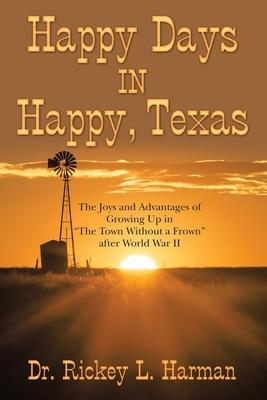It was the best of times; it was the happiest of times. Baby boomers, born in the latter part of the 1940s and into the 1950s, enjoyed an improved lifestyle after their parents survived the Great Depression and World War II. Parents could provide better lives for their children, especially for those who grew up in small communities like Happy, Texas, a small farming town in the Texas Panhandle thirty-five miles south of Amarillo and eighty-five miles north of Lubbock. The town's moniker, "The Town Without a Frown," really applied to these young people.
In Happy Days in Happy, Texas, author Dr. Rickey L. Harman recounts his personal experiences to describe the great life these boomers enjoyed. Because of their parents' improving financial conditions, kids in town and in the country experienced new modern conveniences such as telephones, indoor plumbing, central heat and refrigerated air, television, automobiles, and maybe their own bedroom.
Harman examines the founding of this small community, describes what it was like growing up in Happy in the 1950s and 1960s, and discusses its gradual decline in the latter twentieth century.
